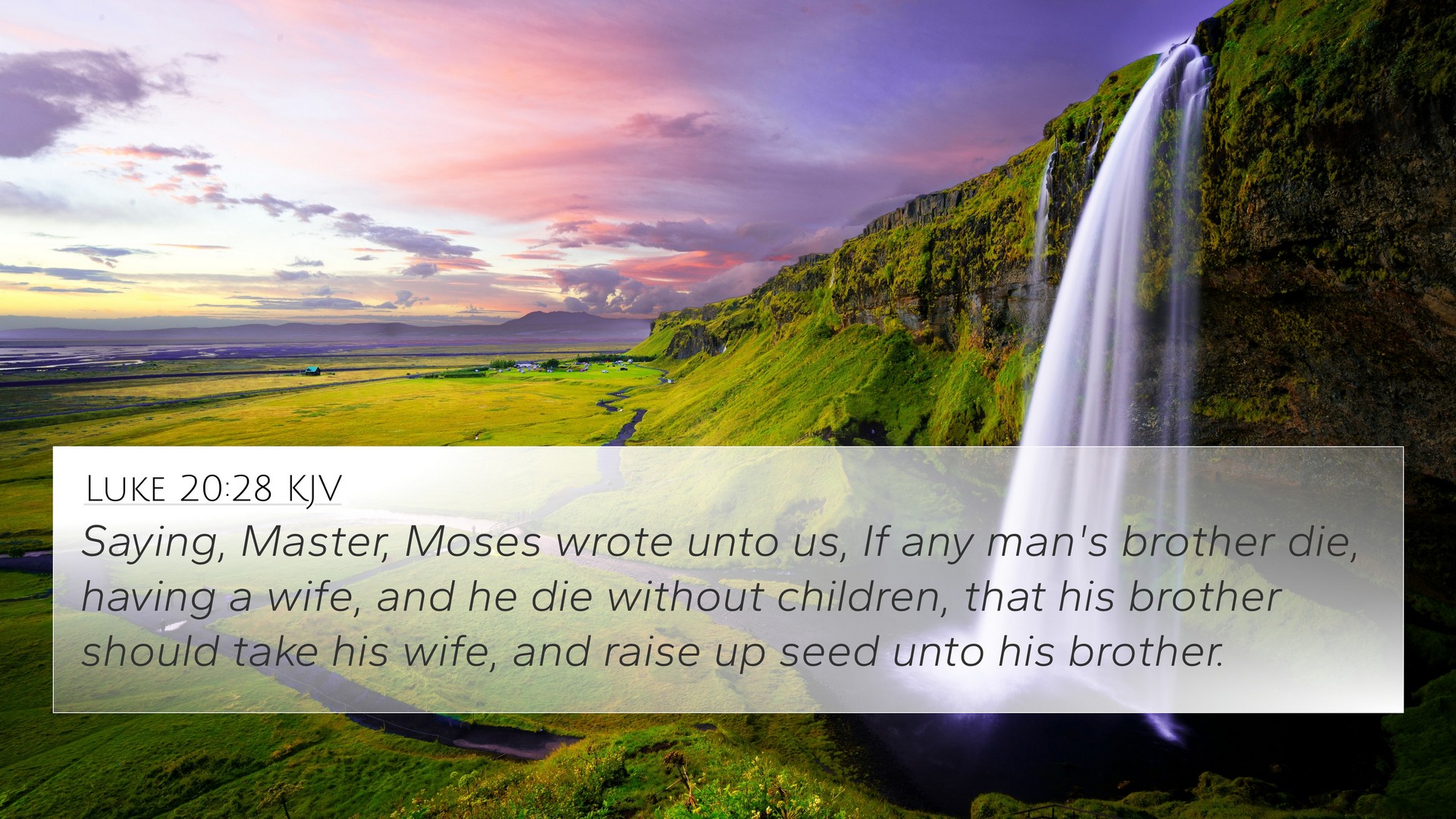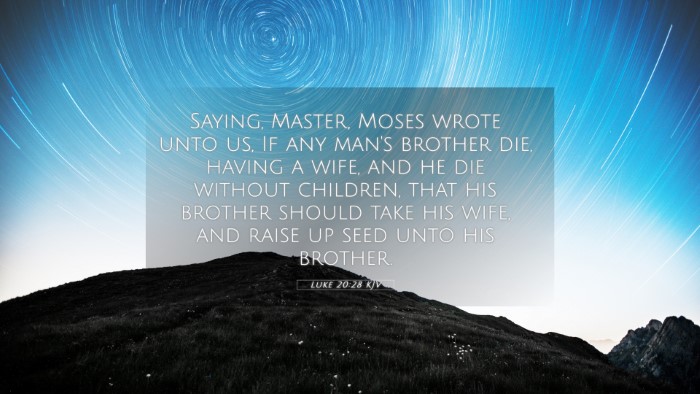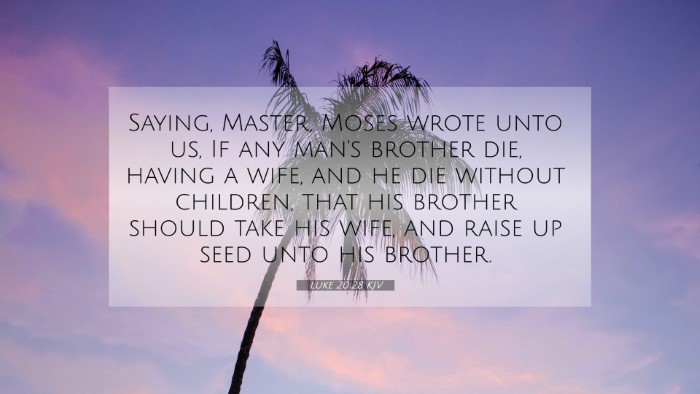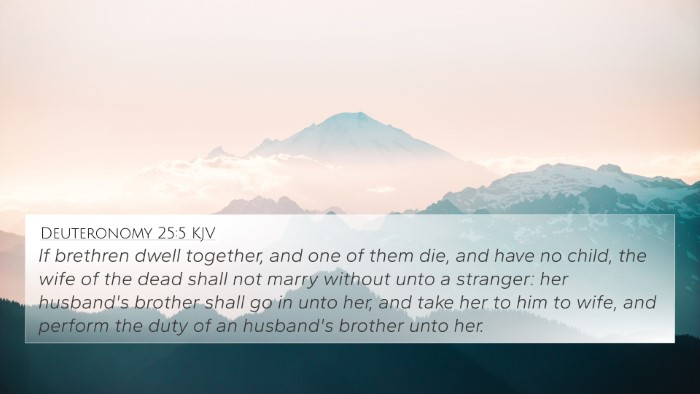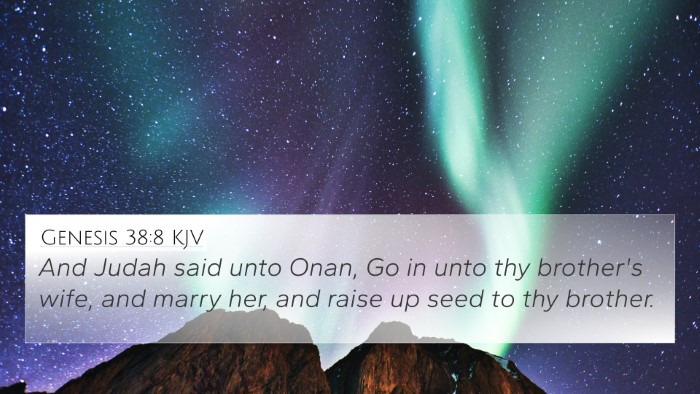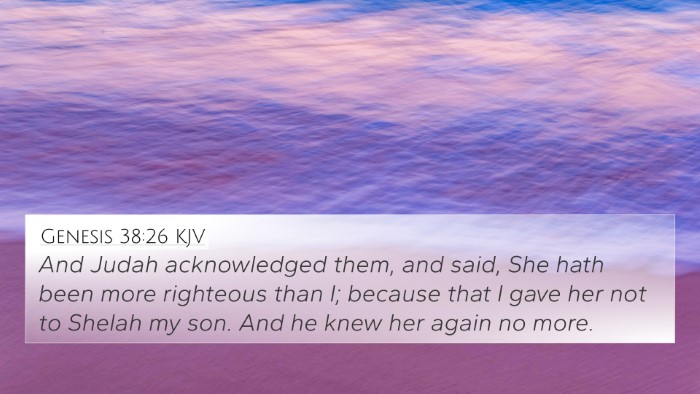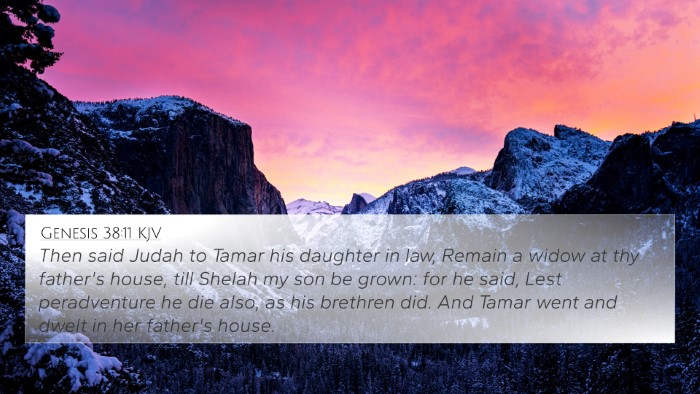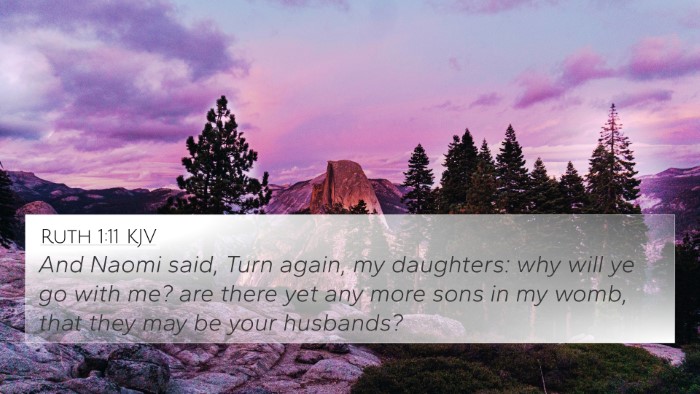Understanding Luke 20:28
Verse: "Teacher, Moses wrote for us that if a man's brother dies and leaves a wife but no children, the man must marry the widow and raise up offspring for his brother." (Luke 20:28, ESV)
Contextual Overview
This verse is situated in a dialogue where the Sadducees, who did not believe in the resurrection, approached Jesus with a hypothetical scenario based on the Levirate marriage law found in the Mosaic Law. Their inquiry aimed to challenge the resurrection doctrine, illustrating their misunderstanding of eternal life and God's promises.
Commentary Insights
-
Matthew Henry:
Henry explains that the Sadducees aimed to mock the doctrine of the resurrection by using a plausible yet insincere question based on the law concerning levirate marriage. He emphasizes that their approach reflects a lack of genuine understanding and respect for God’s covenantal promises of life beyond death.
-
Albert Barnes:
Barnes highlights the importance of the practice described by Moses, noting that it was instituted to preserve family lineage and inheritance. He points out that the Sadducees misused scripture, displaying their skeptics’ attitude towards the resurrection and an afterlife, thus underestimating the complexity of God’s revelation through scripture.
-
Adam Clarke:
Clarke provides an analysis of the social and religious implications of the Levirate law. He addresses the misuse of scriptural references by the Sadducees to support their argument against resurrection, stressing that the doctrine of eternal life is fundamental and is misrepresented by the Sadducees’ hypothetical scenario.
Exegesis
Luke 20:28 raises critical discussions regarding:
- The Levirate law and its implications for societal norms and family responsibilities.
- The resurrection as a fundamental doctrine in Christianity, countering the Sadducees' disbelief.
- How biblical laws serve as a foundation for understanding God's greater plan for salvation and life after death.
Bible Verse Cross-References
Understanding the connections with other Bible verses enhances our grasp of this verse. The following cross-references are significant:
- Deuteronomy 25:5-10: Discusses the Levirate marriage law which is the basis for the Sadducees' question.
- Matthew 22:24-29: A parallel account of the Sadducees’ question regarding resurrection and marriage.
- Mark 12:19-25: Similar to Matthew’s account, providing another perspective on this interaction.
- 1 Corinthians 15:12-22: Paul’s discussion on the resurrection as essential to Christian faith.
- Hebrews 11:35: Offers insights into the hope of resurrection and life after death.
- Matthew 22:31-32: Jesus asserts that God is the God of the living, affirming the resurrection.
- John 11:25-26: Jesus declares Himself as the resurrection and the life, directly addressing themes of life after death.
Thematic Bible Verse Connections
There are thematic connections that allow a comparative Bible verse analysis. Notable themes include:
- Faith in resurrection reflects God's power over death.
- The importance of understanding Old Testament laws in relation to New Testament revelation.
- God's covenantal promises extending beyond earthly existence.
Conclusion
Luke 20:28 serves as a notable intersection of law, resurrection, and the divine interpretive authority of Jesus. By engaging in scripture cross-referencing, believers can enrich their understanding of biblical doctrines related to life, death, and eternal hope. This verse, while rooted in a specific context, opens up broader discussions and insights within the entirety of scripture.
